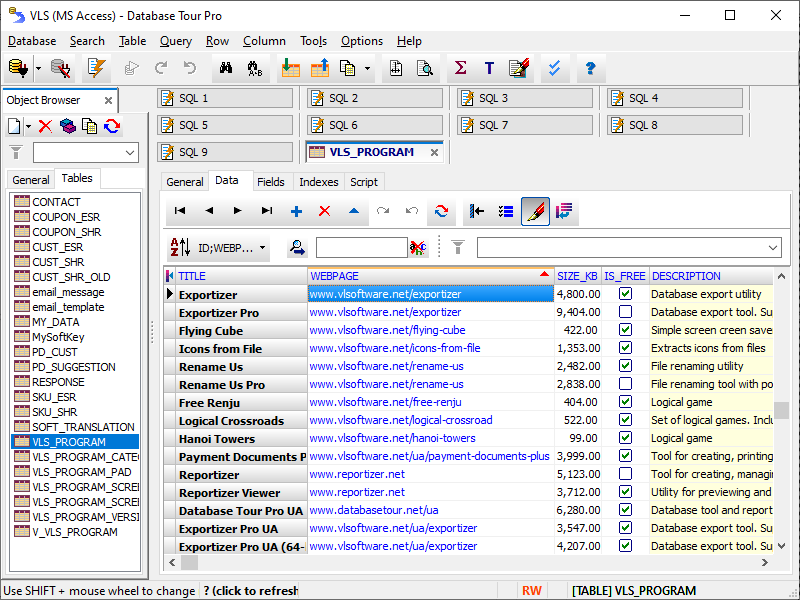
IBM's successful AS/400 minicomputer line has always featured integrated databases. Integrating the database and the OS isn't a novel idea. This proposal isn't very different from the Oracle view after all. The OS could then use the integrated database to store and access objects that are stored now in traditional file systems. Microsoft, because it's primarily an OS company, thinks the database should be part of the OS. In typical fashion, Microsoft turned this idea into one that supports its own interests. Microsoft isn't deaf to the noise that Oracle has made in its iFS and Raw Iron statements. The UDA standard addresses the fact that companies maintain business data in many separate and diverse data sources.īut don't assume that these two behemoths have no common ground. In Microsoft's view, UDA refers to a set of common interfaces that you can use to access data from any data source. Whereas the Oracle view starts with the server, the Microsoft view begins with the client. Both the iFS and Raw Iron projects bring the database and file system objects to a centrally managed Oracle server.Īt the other end of the known universe is Microsoft's Universal Data Access (UDA) strategy. These thin clients would still have an OS, but it would be hidden better-similar to the way UNIX is hidden in a network router. In this scenario, a specialized network-computing device would have access to the Oracle iFS and database applications. Its Raw Iron initiative proposes to eliminate the OS altogether. Oracle's notion of the pervasive database doesn't end with Oracle8 i. database) requests from all the networked clients. And you need a server environment with enough capacity to handle all the file system (a.k.a. Next, you need to manually move these file system objects into the database. For example, you need an Oracle database to hold these file system objects. This notion has merit-and numerous hurdles.
According to Oracle, the database is the best place to store and retrieve objects. Oracle's iFS lets users store word processing documents, spreadsheets, image files, and other traditional OS files within the Oracle database.

Oracle's Internet File System ( iFS), introduced with Oracle8 i, is the latest incarnation of this idea. Oracle, because it's almost exclusively a database company, thinks that everything, including the kitchen sink, belongs in the database.

Although the companies share a similar goal, they're approaching it from opposite sides of the universe. However, when you look a little closer, their goals might be closer than they let on.
#The universal database software
Microsoft and Oracle have long been at odds in the database world, and at first glance, the two software giants' positions on universal data appear to be no exception.


 0 kommentar(er)
0 kommentar(er)
